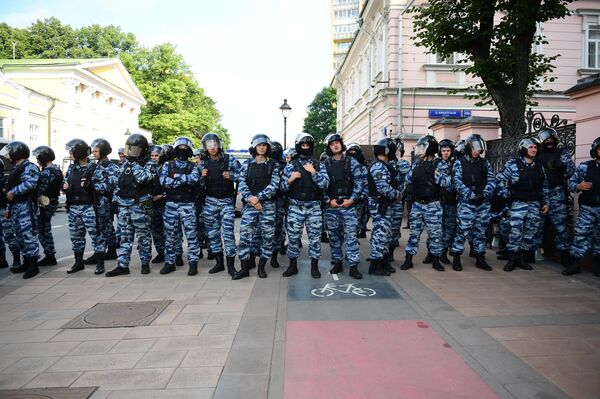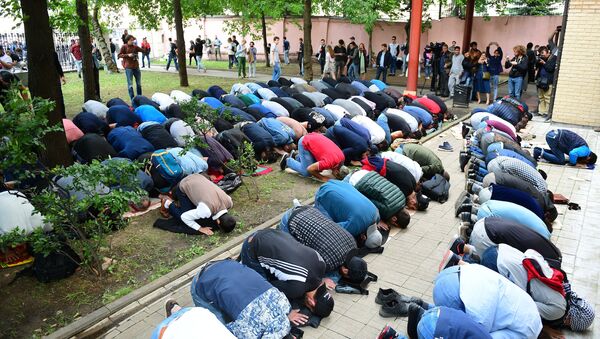MOSCOW (Sputnik) — According to the source, the protesters came to the Bolshaya Nikitskya Street in support of the Muslims who suffered in the clashes with the authorities of Myanmar.
The source added that police and the Russian National Guard officers were deployed to the scene to prevent incidents. The press service of Moscow police later confirmed that the authorities did not register any breaches of public order during the demonstration.

Earlier in the day, media of Russia's Chechen Republic reported that thousands of people would gather in the region's capital city of Grozny on Monday to express their protest against the brutal clashes with Rohingyas. Chechen mufti, a major Muslim cleric of the region, confirmed that the rally would be held next to the Akhmat Kadyrov mosque, the main religious center of the republic.
Около 400-500 мусульман пришли к посольству Мьянмы в Москве, чтобы поддержать народ рохинджа. Фото: Илья Варламовhttps://t.co/ewnbnUk6vb pic.twitter.com/08TMetKEI8
— Медиазона (@mediazzzona) 3 сентября 2017 г.
Власти Мьянмы заявили об убийстве 400 жителей-мусульман.Беженцы говорят о тысячах убитых властями.
— Теория элит (@boeing_is_back) 3 сентября 2017 г.
В Москве по этому поводу митинг мусульман pic.twitter.com/6yXQDCmRx2
Митинг у посольства Мьянмы в Москве против геноцида народности рохинья. В этой стране буддисты-террористы убивают мусульман-рохинья. pic.twitter.com/6GkSSrD5KQ
— Поистине (@poistine) 3 сентября 2017 г.
Last week, Muslim insurgents of Rohingya origin attacked security posts in Rakhine. The attacks prompted a harsh response from authorities, with the ongoing clashes between Burmese armed forces and Muslim insurgents killing at least 109 people. More than 18,000 Rohingya refugees have fled to Bangladesh since ethnic clashes flared up in Rakhine state, according to the International Organization for Migration's (IOM).
Rakhine is a site of frequent clashes between Myanmar's Muslims and Buddhists. The conflict that started about a century ago has gradually escalated since 2011 before hitting its peak in 2012, when thousands of Muslim families sought asylum in the special refugee camps on the country's territory or fled to Bangladesh. Yet another escalation started in 2016.


